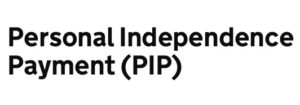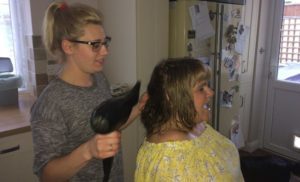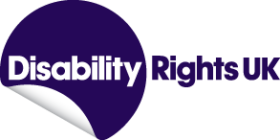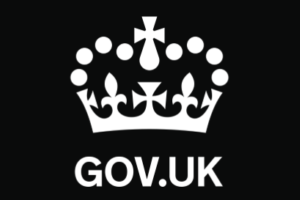Key Benefits For Disabled People
Personal Independent Payment (PIP) – this is the most important one
Personal Independent Payment (PIP), has two parts:
- Daily Living
- Mobility
If you are noticing that you are not able to do everyday tasks like you used to do, such as preparing meals, doing the shopping, or doing the cleaning, then it is worthwhile that you apply for PIP.
You may also be struggling to get out and about on your own or noticing that you feel more anxious when you go out, even in an area that is familiar to you.
If you are unsure whether you are eligible for PIP, please contact our Health & Wellbeing team on 01480 474074 to speak with one of our Health & Wellbeing Co-ordinators who will be able to help you.
We have produced lots of information to help you find out more about PIP – including a PIP pack and some case studies.
Personal Independence Payments

Find out more about the PIP process, download our PIP pack
Be Wise
Anyone can apply for PIP up to the age of 64. After that you can apply for Attendance Allowance (AA).
However, please be aware that AA only gives financial support for daily living care and support. There is no mobility support with AA. So if you are noticing any changes in either daily tasks or going out, please consider applying for PIP now otherwise you will lose out on money to which you may be entitled.
Disability Living Allowance (DLA)
If you are currently receiving Disability Living Allowance (DLA), you need to be aware that this is being replaced by Personal Independent Payment (PIP). You will not automatically be transferred over to PIP. When your DLA is coming to an end, the Department of Works and Pensions (DWP) will write to you and invite you to apply for PIP.
If you have not already been contacted, we would recommend that you contact the DWP to ask when you will be invited to apply.
Please do not worry when you receive your letter. Just call the Health & Wellbeing team on 01480 474074 and one of our Co-ordinators will help you with the process.
Carers Allowance (CA)
Are you looking after a family member or is someone helping you? Then you, or they, may be entitled to Carers Allowance.
CA is a benefit for people who regularly spend at least 35 hours a week caring for a disabled person and are not paid for providing care. To receive CA, you don’t have to be related to, or live with, the person you are caring for.
You can still qualify for CA even if you have never been employed or paid National Insurance contributions.

CA is taxable but is not means-tested. However, there is an earnings limit of no more than £120 a week after deductions. Any savings you have do not affect your CA.
You cannot receive CA if you are in full-time education (21 hours a week or more).
You can qualify for CA if the person you care for receives the daily living component of PIP or either the highest or middle rate of the care component of Disability Living Allowance or Attendance Allowance.
An additional ‘carer premium’, can be included in Housing Benefit, income-based Jobseeker’s Allowance, income-based Employment and Support Allowance or Universal Credit. This may lead to an increase in benefit or qualification for benefit for the first time.
However, claiming CA could affect the amount of benefit that the person you are caring for receives.
Universal Credit (UC)
Universal Credit is a single, integrated, means-tested benefit payable to people of working age who are on a low income. It does not depend on your National Insurance contributions, is not taxable and does not take account of Trust grants.
UC has replaced other working age means-tested benefits that you may have previously heard of:
- Child Tax Credit
- Housing Benefit
- Income-based Employment and Support Allowance
- Income-based Jobseeker’s Allowance
- Income Support
- Working Tax Credit
UC has now been rolled out over the UK. It is no longer possible to make a new claim for any of the above working age means-tested benefits.
Universal Credit is paid monthly. Entitlement is worked out by comparing your basic financial needs that the government says you need to live on with your financial resources.
You can get UC to cover just your needs if you are a single person, or those of your partner and/or children if you have a family.
If you have a partner you must make a ‘joint claim’ for Universal Credit.
You (and your partner if you are making a ‘joint claim’) must not have savings of more than £16,000 (from sources other than Trust grants).
UC has ‘joint conditionality’ entitlement conditions if you are a member of a couple. So, for example, while one of you may not be expected to be available for and actively seek work, your partner may be expected to do so.
Council Tax Reduction (CTR)
Council Tax Reduction is help towards your Council Tax. Each local authority has its own CTR scheme, but all are means-tested. Your eligibility depends on your (and your partner’s if you have one) income and savings, excluding Trust Grants.
A similar system called Rates Relief (RR) applies in Northern Ireland.
Free Vehicle Tax for the Disabled
If you receive the higher or enhanced rate mobility component of either PIP or DLA benefits you may be eligible for free vehicle tax.
Check your eligibility and find out how to apply
Further information on benefits
Disability Rights UK

Find out more about disabled rights and benefits available

